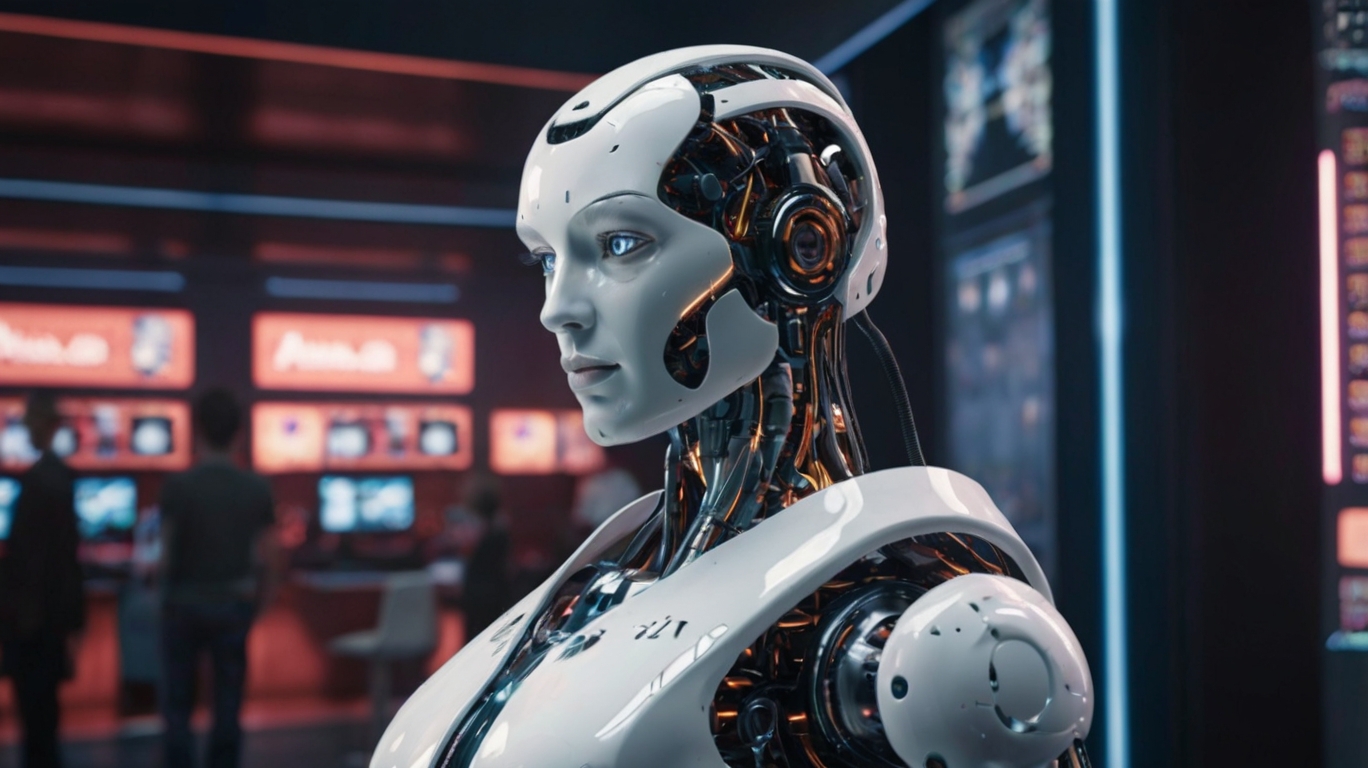
Artificial intelligence (AI) is permeating every aspect of our daily lives, and it’s even more so affecting game development. Its impact on the gaming industry has changed in recent years. AI is changing how games are designed and developed and how players interact with them. Let’s look at how AI is changing the game industry.
1. Enhancing the Player Experience
AI-driven algorithms are at the heart of creating personalized and dynamic gaming experiences.
AI allows developers to create vast, complex game worlds with minimal effort. Games like No Man’s Sky use procedural algorithms to make billions of unique planets, ensuring that players experience something new every time they play.
Non-player characters (NPCs) can now learn and adapt to the player’s behavior. For example, AI NPCs in games like Middle-earth: Shadow of Mordor use the Nemesis system to remember past interactions, making the gameplay more immersive and personalized. \
The AI tracks player performance and adjusts the game’s difficulty level in real-time to maintain balance, as seen in games like Left 4 Dead.
2. Game Development Optimization
Improving creative workflows, AI enables the automation of repetitive tasks.
AI tools can generate 2D and 3D assets, reducing the time and cost of creating game art. AI systems, for instance, may produce settings, characters, and textures much more quickly than an artist could.
More effectively than human testers, AI-powered bots can replicate many gaming scenarios to find errors and flaws. It makes possible faster iterations and a more seamless development process.
Natural Language Processing (NLP) models, such as ChatGPT, are used to generate dialogue and storylines, allowing authors to quickly prototype narratives and explore more creative options.
3. Revolutionizing Game Design
AI creates new opportunities for game design, increasing the interactivity and immersion of games.
- AI-Driven Storytelling: AI can analyze player choices and craft branching narratives that feel organic and tailored. This is especially valuable in role-playing games (RPGs) and narrative-driven titles.
- Realistic Physics and Animations: AI algorithms simulate realistic movements and physics-based interactions, making characters and environments behave more believably.
- Procedural Music and Sound: AI-generated soundtracks can adapt to the game’s atmosphere or player actions, providing a more immersive audio experience.
4. Transforming Player Interaction
AI has also changed the way players interact with games and each other.
Games can use AI to create in-game helpers that react to players organically or to give voice orders.
By identifying questionable patterns of activity and cheating in multiplayer online games, AI contributes to the preservation of fair play.
Gaming platforms use AI to recommend games or in-game content based on player preferences and behavior.
5. Monetization and Analytics
To maximize monetization tactics, AI is heavily involved in player data analysis.
AI tracks in-game behavior to predict player preferences, allowing developers to tailor in-game purchases or events.
AI systems can maximize profits by modifying in-game item prices in response to player demographics, market trends, and demand.
Challenges and Ethical Considerations
While the benefits of AI are immense, its integration into the gaming industry also poses challenges.
Concerns about user privacy and protection are brought up by the gathering and analysis of player data.
AI systems must be designed to ensure fair gameplay and avoid biases that can be detrimental.
The automation of creative tasks could reduce the need for certain roles in the industry, creating challenges for professionals.
Conclusion
AI is more than just a tool. It enables the development of more intelligent, immersive, and captivating games than in the past.By using AI, the game industry may achieve unprecedented levels of efficiency and creativity while providing users with an unmatched experience. However, balancing innovation and morality will be necessary to fully utilize AI in a responsible manner.
As game creators, artists, and fans, we are living through a new era. AI is defining the future of gaming. The lines separating the real world from virtual ones are becoming increasingly hazy due to artificial intelligence’s boundless potential.




